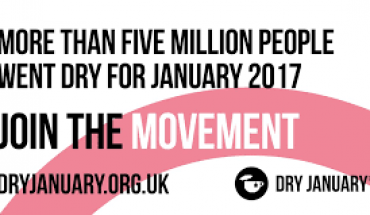With the constant threat of terrorism, people may feel fearful about death when going about their business.
Sudden death of a loved one is the worst sort of trauma for survivors to manage, and is the most common reason why people seek psychotherapy.
Sudden death of a loved one is the worst sort of trauma for survivors to manage, and is the most common reason why people seek psychotherapy.
So how can we deal with our current fears of terrorism and death?
In peacetime, we can do this by mindfully observing through each of our senses rather than just through our eyes. On the street, we can be more observant instead of blocking out our ears and eyes by using our phone or listening through headphones.
We can relieve anxiety by knowing how to breathe mindfully, to be creative through culture and music, through the sensations of touch, smell, sound, sight and taste.
When someone takes on the terrifying ideology of a terrorist organisation, we may wonder if they were terrorised into becoming a terrorist before they began terrorising others?
The answer to this is best illustrated by cognitive analytic therapy, where we explain how people relate, as if on a see saw. It is easy to understand when one person is in control of the weight at bottom end, the other person is suspended up high and has no control. By taking turns, each has the feeling of being at the controlling end and then also of feeling controlled. This seesaw is so polarised and nasty things can happen. The solution only appears when one takes the middle position, having leverage in both directions – like a good negotiator would.
We call this concept a reciprocal role. This idea applies to every human interaction: if one person is loving, the other feels loved. If someone is rejecting, the other person feels rejected. If someone is behaving in an attacking way, someone feels attacked.
Might a terrorist recruit feel terrorised by those they look up to, and if so are they themselves vulnerable to oppression or mentally unstable with depression or anxiety? Do they feel they must obey? Does this mean that they cannot think for themselves anymore?
My work with mentally disordered offenders who have killed, demonstrates how instinctual, mindless impulses result in high-risk behaviours.
My work with mentally disordered offenders who have killed, demonstrates how instinctual, mindless impulses result in high-risk behaviours.
These become observable in body language and symbolic gestures, which can be explained and understood.
For example, if someone feels excluded – then we can often see this as a pattern that has gone on throughout their lifetime and it can start to be addressed in a cognitive analytic approach by including them instead.
If an individual is not able to talk about their experiences and losses for fear of shame or flashbacks, then there is an inability to mourn. In effect, the individual is unable to feel the grief. As a result, some will turn to alcohol or drugs to fend off the pain – as described in a Pink Floyd song, they become ‘comfortably numb’.
The men who came back from the first World War could not talk about the horrors that they witnessed, instead with a return to civilian life, as portrayed so vividly in the TV series ‘Peaky Blinders’, they maintained their own ways of being loyal to each other. After going through so much conflict and trauma, they turned to what was familiar through different forms of risk-laden responses; bare knuckle-fighting, thrills through gambling and drinking. And, to numb out the flashbacks and nightmares, they smoked opium.
So, we see that there is an emotional trauma that is endured when killing, which can lead to the loss of mental health, with subsequent diminished responsibility.
That lack of responsibility for one’s own actions cannot always be explained through mental illness. Nor is it faced if a terrorist commits martyrdom, which is pre-meditated and for which he prepares himself psychologically. If the perpetrator lives he has committed the offence of murder and is incarcerated in prison.
Hopefully the world will become a better place as our increased knowledge of the human brain continue to inform treatment developments, which can include non-medical and creative resources that diminish aggression and promote mutual understanding. In this way people may better tolerate their differences without judging others.
- Performing arts in community NHS treatment - 28th December 2017
- Dealing with fear of terrorism and death - 3rd August 2017
- Music therapy in clinical settings - 21st June 2017






